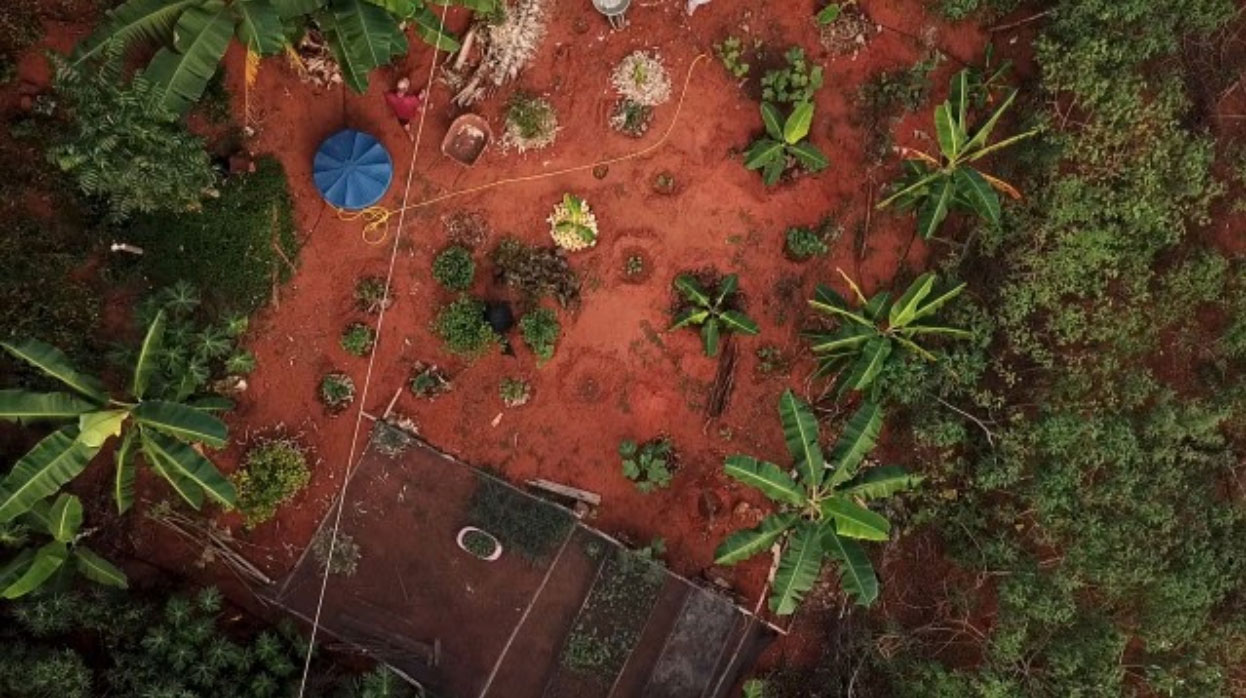Actions promote the permanence of farming families and integration with indigenous people in the rural area of the Xingu-Araguaia region
By Tatiane Ribeiro
“I knew we needed to do something”. Today, Maria José Pereira de Souza is one of the collectors of the Xingu Seed Network in addition to actively participating in activities in the community.
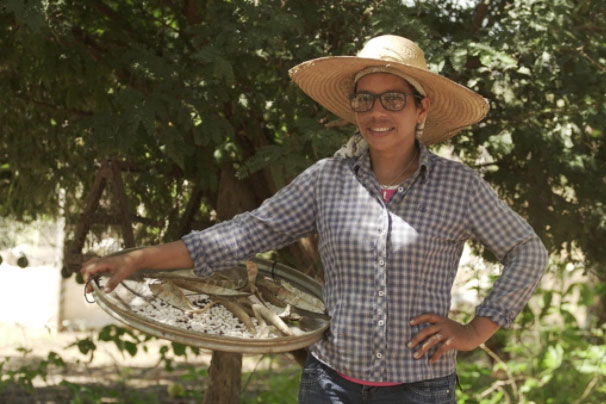
Photo: Daniel Paranayba
“Just like [when we] came here, we couldn’t stay”. The phrase by Maria José Pereira de Souza, resident of the Bordolândia Sustainable Development Project (PDS – Bordolândia), in Serra Nova Dourada (MT), reflects the conditions of most of the land in rural settlements soon after being obtained through Agrarian Reform. Erosion, deforestation and grass are some of the elements that family farmers need to deal with in order to stay on the land and make a living from it.
Experiences in the Xingu-Araguaia (MT) region demonstrate that it is possible to overcome these challenges through joint actions, when families strive to diversify their backyards and promote different sources of income. This is the result of the work of the Xingu Araguaia Articulation (AXA), an initiative composed of five institutions:, Operation Amazon Native (Opan), Xingu Seed Network Association (ARSX), Socioenvironmental Institute (ISA), Pastoral Land Commission (CPT) ) and the Nossa Senhora da Assunção Association (Ansa), which work with communities of family and indigenous farmers.
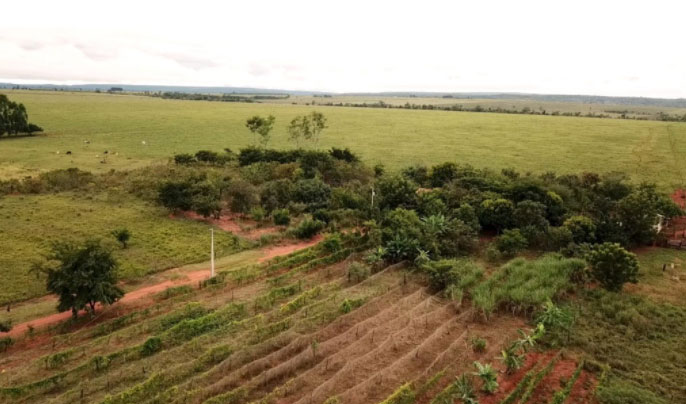 Photo: Daniel Paranayba
Photo: Daniel Paranayba
“A lot of people criticized, what do you want so many trees for?” The diversification of the yard and the planting of trees around the house guarantee the complementation of the families’ income.
The actions seek to mobilize society to create sustainable alternatives related to land management, restoration of degraded areas and generation of resources from the standing forest. “With climate change and the advance of agribusiness, having the land is not enough: it is necessary to create conditions to live on it”, says one of the opening sentences of the video “Roça do Futuro” created to show the work of the institutions in the region.
The angico tree was the first tree that Mr. Pedro Righi planted in the yard. From that tree that can reach up to 20 meters in height came the other seeds.
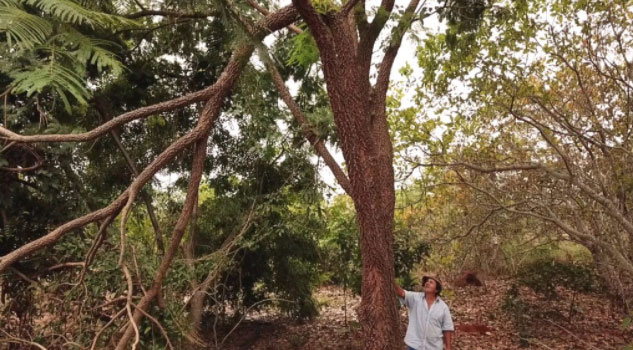 Photo: Daniel Paranayba
Photo: Daniel Paranayba
After ten years in the territory, AXA’s joint effort made part of the families supplement their income from their own production, reducing work outside the home and the purchase of industrialized food products. , through guidance on agroecological management, creation of Permanent Protection Areas (APPs), agroforestry and ecological restoration, planting trees in backyards, collecting seeds, implementing water wheels, selling fruits, integration with the Xavante da Marãiwatsédé Indigenous Land, among other actions.
Watch the full video on the Xingu Seed Network channel on Youtube:
“In the beginning the thought was just to express milk and today there is diversity: it has milk, it has fruit and it has seeds. Great diversity ”, says Anderson Righi, a young resident of the settlement.
The activities favored mainly women who had no option to work outside the home but who, with the activities, started to have their own income. “But the ones who take care of the yards here are women. So she goes there and buys, she doesn’t have to depend on her husband. It is hers, she collected it, she worked it, it is her income ”, says Eliane Righi.
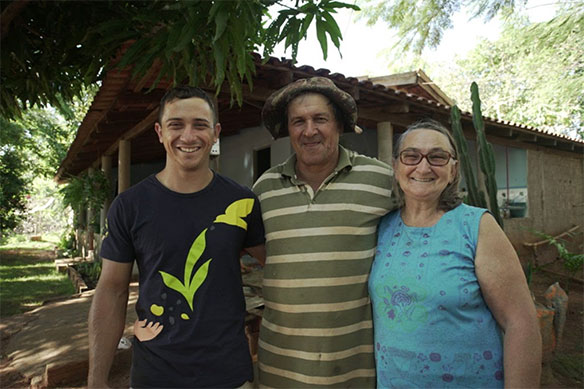
The Righi family was one of the pioneers in the participation of AXA projects. Since 2010, they have participated in CPT meetings and act in other actions. Photo: Daniel Paranayba
Part of the actions were carried out under the project “Mobilizing Araguaia Xingu in favor of food sovereignty and against climate change”, financed by the institution Manos Unidas, which aims to promote and develop the socio-environmental diversity and food sovereignty of the region. “It is an innovative and cooperative project that unifies different universes in favor of a common objective, that is, it unifies the struggle of family farmers and indigenous peoples, who are concerned with environmental diversity and the preservation of cultural identity”, says Lola Campos Rebollar, project coordinator at AXA.
AMAZ, ISA AND THE XINGU SEEDS NETWORK
2% percent of all Amaz sales go to the Xingu Seeds Network, a non-profit organization that promotes reforestation and agroforestry within the Brazilian Amazon. It is a social, ecological and community movement that collects tree seeds, and redistributes them to replant deforested areas of the Xingu River basin, bringing new agroforestry technologies to areas in need.
Xingu Seeds Network emerged from an initiative of the Instituto Socioambiental (ISA), a non-profit Brazilian civil society organization, founded in 1994, to promote integrated and inclusive solutions to social and environmental issues. ISA believes in the defense of social, collective and diffuse environmental and social rights & resources, cultural heritage, and human rights.

